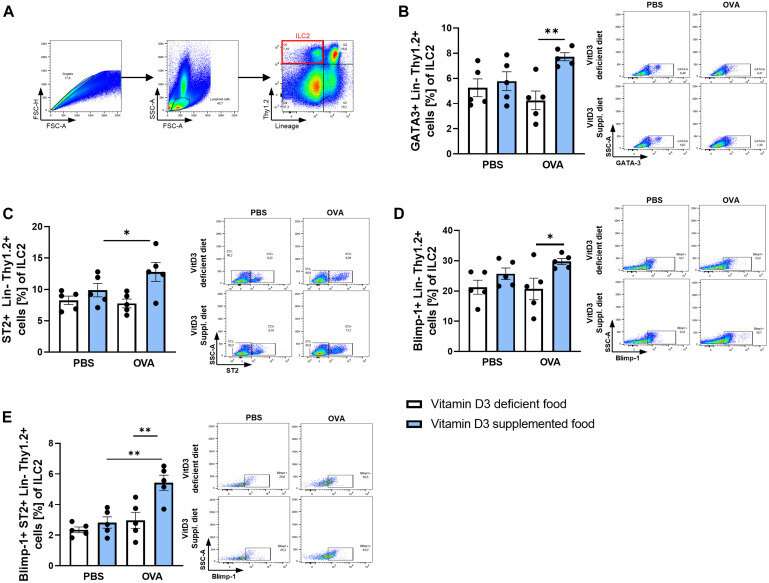
A vitamin D3 deficiency can lead to severe symptoms, for example in people suffering from allergic asthma. This has already been shown in several studies. However, we still do not fully understand how exactly this vitamin influences the cellular inflammatory reaction in the body.
A team of researchers from the Department of Molecular Pneumology at Universitätsklinikum Erlangen has now demonstrated for the first time how taking vitamin D3 can alter the cellular inflammatory reaction in allergic asthma and alleviate asthma symptoms. The paper is published in the Journal of Allergy and Clinical Immunology: Global.
Doctoral candidate Janina Grund and the members of the working group led by Prof. Dr. Dr. Susetta Finotto from the Department of Molecular Pneumology have investigated the clinical manifestation of asthma in pre-school children and adults in the context of vitamin B3 levels in their blood and taking vitamin D3 supplements.
The team of researchers discovered that children and adults who took vitamin D3 supplements had less pronounced asthma symptoms and presented with less severe asthma, at the same time as requiring fewer steroids for inhalation. In certain cells in the blood of people with higher levels of vitamin D3, the scientists discovered greater quantities of the protein blimp-1, that is responsible for controlling the immune response of T helper cells.
In order to gain a better understanding of the mechanism, Janina Grund investigated the effects administering vitamin D3 has on the immune response in mice. Once again, the vitamin led to less severe cases of asthma.
She also found fewer allergy-inducing antibodies (IgE) that are responsible for certain allergic diseases such as hay fever, asthma or eczema. Administering higher doses of vitamin D3 even triggered an anti-inflammatory reaction in the immune system, specifically with the messenger substance IL-10 and cells that create blimp-1.
Interestingly, the working group was able for the first time to prove that the vitamin has an effect on long-lived memory T cells that are key to the long-term immune response in the case of asthma.
The research team demonstrated that taking vitamin D3 supplements has a positive effect for asthma patients, underlining how important it is that they have enough of this vitamin. As it is hard to give specific recommendations for treatment based on this basic research, however, patients should contact their doctor if they have any questions.
Friedrich–Alexander University Erlangen–Nurnberg

